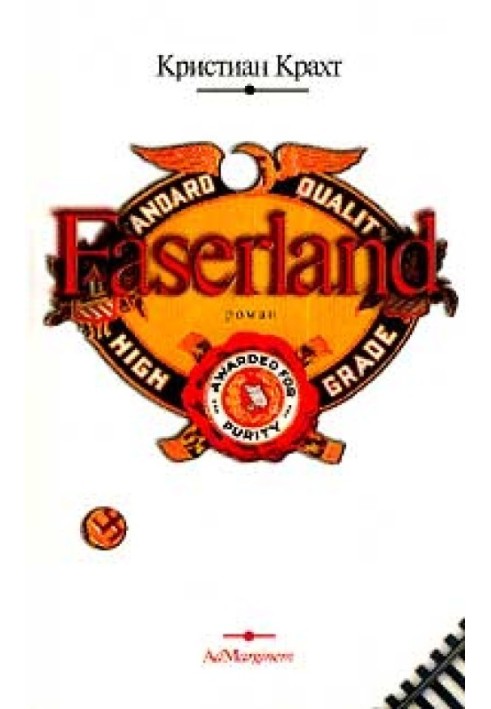Faserland
 Instant download
Instant download
after payment (24/7)
 Wide range of formats
Wide range of formats
(for all gadgets)
 Full book
Full book
(including for Apple and Android)
From a conversation with Victor Kirchmeier on Deutsche Welle radio: Christian Kracht’s novel “Faserland” - the most important German novel of the 90s - has already become canonical. In the 50s, the German neo-Marxist philosopher Theodor Adorno said: “You can’t write poetry after Auschwitz.” And then a generation came that began to write about the everyday life of its time and its life. With the appearance of the novel "Fatherland" by Christian Kracht in 1995, the clock ticks differently. Without this book, without this new climate, the emergence of a new German literature would have been impossible. Christian Kracht is the second member of the “pop culture quintet” of young German writers. He has all the qualities that are contraindicated for a “real” writer: arrogant, conspicuously well dressed, drives a sky-colored Porsche. When asked why he never gives interviews, he answers: “I’m very rich.” Fatherland is Kracht's first novel. The main character of the novel travels through Germany or, as he himself says, “says goodbye to this ugly country inhabited by ugly and stupid people.” The chapters of the novel are a series of first class carriages and endless parties with cocaine, sex and alcohol. Literary critics perceived the novel as a blatant provocation. Martin Hielscher thinks differently: The provocateur's gesture is based on what he knows or thinks he knows, what is right, where to go. He has an “enemy image.” Kracht, who drinks champagne and drives a Porsche, is actually full of doubts. His entire body protests against this meaningless existence. At 28, he is already experiencing an existential crisis that usually strikes men between 40 and 50. And constant vomiting is nothing more than sabotage. At the end of the novel, the hero has the idea to commit suicide, but he abandons his plan only because he does not take this world seriously. Last year, an anthology of 16 young German writers entitled Mesopotamia, compiled by Christian Kracht, was published in Germany. Its epigraph reads: “The end of irony.” Members of the “pop culture quintet” are seriously looking for relief from boredom and indifference. At any cost: up to “destroying this well-being in order to start all over again.” “We won't go to hell. We have been living there for a long time,” says Christian Kracht. This is the hell of the media world, where wars and disasters are shown just enough so as not to bore the viewer, who can switch the TV to another program.
Data sheet
- Name of the Author
- Кристиан Крахт
- Language
- Russian
- Translator
- Татьяна Александровна Баскакова


















